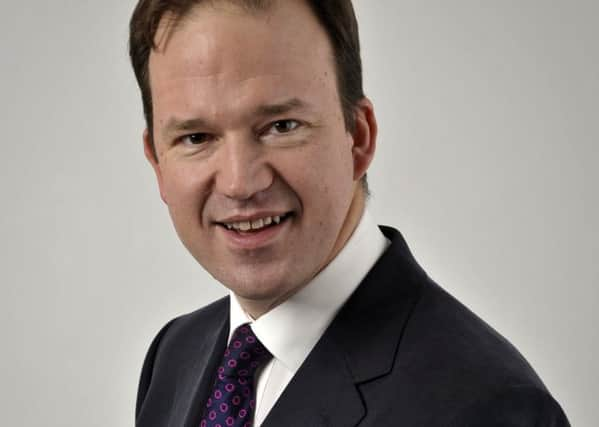Financial Secretary to Treasury plans to meet MPs who support loan charge suspension


Jesse Norman has confirmed that he will hold talks with Sir Ed Davey MP, the chairman of the Loan Charge All Party Parliamentary Group (APPG), to discuss concerns about the charge.
The APPG argues that the charge is retrospective, overrides taxpayer protections and undermines the rule of law - claims which are disputed by the Treasury.
Advertisement
Hide AdAdvertisement
Hide AdOn Twitter, Mr Norman said: “Mine is not a review; it is work needed for me to understand a complex and politically contested topic.
“So far I have met with senior HMRC and HMT (Treasury) officials, with CIOT (Chartered Institute of Taxation) and ICAEW (The Institute of Chartered Accountants in England and Wales) as expert outside bodies.”
Mr Norman said he had also met with Keith Gordon, a tax barrister, and Lord Forsyth, a former Secretary of State for Scotland, to discuss the loan charge.
He added: “I am very grateful to all of them. The next stage is for me to meet with Sir Ed Davey MP and other parliamentarians who have led on this issue—shortly I hope.”
Advertisement
Hide AdAdvertisement
Hide AdThe loan charge was introduced in response to the Treasury’s concerns about “disguised remuneration schemes” which involved individuals being paid through loans, usually via an offshore trust in a low or no tax jurisdiction, which they did not have to repay.
According to the Treasury, the loan charge means people paying themselves through loans will have to contribute their “fair share” to pay for our public services. Workers from a wide range of professions - including locum doctors and nurses - have been hit with unexpected tax bills of up to tens of thousands of pounds dating back to 1999.
The APPG’s report into the loan charge states: “In the vast majority of cases examined, these arrangements were not entered as aggressive tax avoidance, but after professional advice.
“A substantial number of people, especially in the public sector, did not even understand their pay involved loan payments. Worst of all, the evidence seen and heard by the APPG shows there is a clear risk to the mental welfare of people facing the Loan Charge, including a known suicide risk.”
Advertisement
Hide AdAdvertisement
Hide AdThe Loan Charge APPG recently held a meeting to discuss HMRC’s behaviour and their pursuit of individuals affected by the loan charge.
Speaking afterwards, Sir Ed Davey MP, said: “MPs have been told, time and again, that HMRC will treat taxpayers facing the loan charge in a fair way, taking their circumstances into account – yet the evidence suggests that simply isn’t true.”
An HMRC spokesperson said: “HMRC is committed to treating all those we serve with respect and consideration and we will always investigate any evidence that we have fallen short. However, we do not accept the accusations made by the APPG and will review the extracts published.
“We have committed to giving people as long as they need to pay the loan charge as we completely understand that facing a large tax bill can be difficult and stressful.
Advertisement
Hide AdAdvertisement
Hide AdThe spokesman added: “Our teams are trained to identify customers who are anxious, worried or need extra support and ensure they get the help they need.”
If people are worried about being able to pay the loan charge, they should get in touch with HMRC by calling the dedicated HMRC helpline on 03000 599110.
A Treasury report into the charge said: “The Government considers that the rationale for this charge is clear and robust, and has been consistently clear there is no intention to change the relevant legislation which has been enacted by Parliament.
“The government is clear that the legislation is not retrospective. It does not change the tax position of any previous year, the tax treatment of any historic transaction, or the outcome of any open compliance checks.”